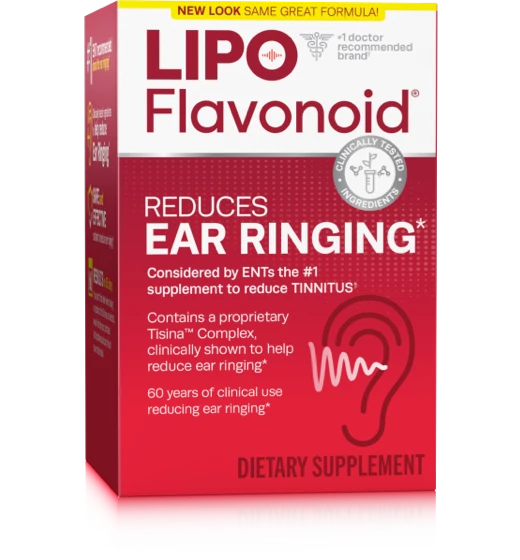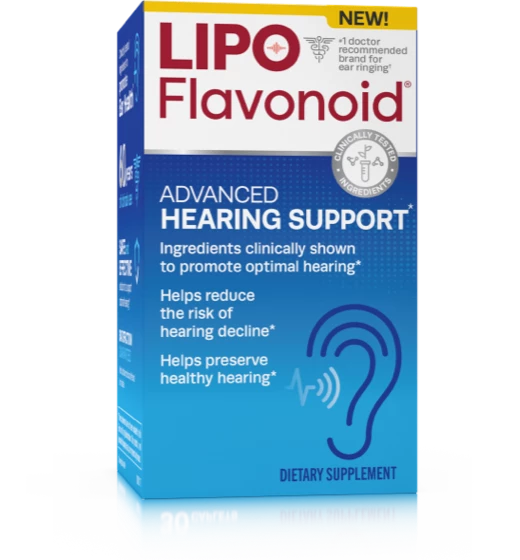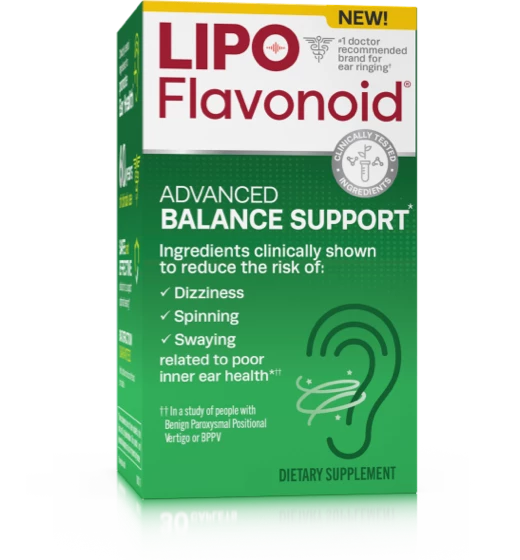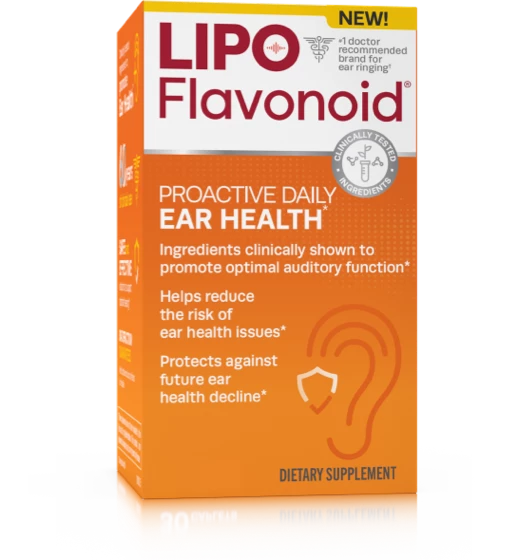- Products
- Science
-
Resources
- Tinnitus Resources
- What is tinnitus?
- Causes of tinnitus
- Tips for managing tinnitus
- Prepare for your doctor's visit
- PTSD and tinnitus
- Tinnitus FAQs
- Hearing Loss Resources
- What is hearing loss?
- Degrees of hearing Impairment
- Types of hearing loss
- Causes of hearing loss
- Treatment options for hearing loss
- Buy Now
- Coupons
- Test Your Hearing
- Test Your Hearing
- Healthcare Professionals
Tinnitus 101: What You Need to Know About Ringing in the Ears
While our hearing is crucial to helping us communicate and navigate the world around us, our ears are often overlooked until something goes wrong. Whether you’ve been suffering from ringing in the ears (tinnitus) for years or you’ve just started noticing it, here’s what you need to know to better understand your condition and what you can do about it.
- You’re not alone.
Tinnitus, which is the scientific name for the perception or sensation of sound “in the ears” when no actual external noise is present, affects more people than the populations of California and Oregon combined. In fact, tinnitus is one of the most common health conditions in the United States and two million Americans say that their tinnitus symptoms are so severe that they have trouble functioning in their daily lives. But while tinnitus can sometimes feel isolating, sufferers have a lot of company, there are strategies to help relieve symptoms, and your healthcare provider wants to help.
- Yes, tinnitus is worth talking about.
People from all over the country and all walks of life experience tinnitus or disturbing “ringing” in the ears. Often, there’s no clear cause but sometimes there’s a medical condition, medication, or other process going on behind the scenes that’s causing or contributing to troublesome ear ringing. Before you start thinking you’re stuck with tinnitus, talk to a healthcare provider so he or she can rule out the wide range of medical conditions linked to ear ringing and make sure that a medication or supplement is not part of the problem. (Of course, never stop taking or change the dosing of a medication that your doctor has prescribed for you without talking to him or her first. You don’t want to trade one problem for another!)
- Protect your ears to help prevent tinnitus from getting worse.
According to the National Institutes of Health, loud noises can permanently damage hearing, trigger tinnitus, or bring on a combination of the two. Reducing exposure to loud, ear-irking sounds, on the other hand, can help improve tinnitus and keep it from getting worse. You can safeguard your ears with earplugs or other ear protection devices when noise exposure is unavoidable. Move away from noise sources when possible. Make sure the volume on your headphones or ear buds is turned down and allow ears to recover from noise by taking periodic “quiet” breaks.
- Try this to help find relief.
Consider a nutritional supplement to help manage tinnitus symptoms. According to a recent survey of 250 Ear, Nose and Throat physicians (Otolaryngologists or ENTs), 70% recommend over-the counter products and supplements to their tinnitus patients and 74% recommend Lipo-Flavonoid specifically. Lipo-Flavonoid products combine lemon bioflavonoids and other essential nutrients to help support ear health. Clinical experience reported in medical journals indicates that patients can experience considerable benefit from lemon bioflavonoids without side effects.
- Remember to look after your whole self.
The impacts of tinnitus often aren’t just limited to the ears. For instance, 77% of tinnitus sufferers say their symptoms are most bothersome when they try to sleep and 50-60% say they experience depression. It does not have to be this way. Talking to your healthcare provider, avoiding loud noises, trying supplements, and practicing good sleep hygiene along with regular exercise, a nutritious diet, and reducing stress can help to keep your blood vessels healthy and improve your general wellbeing, which, in turn, can help to improve your tinnitus symptoms and your ability to deal with them.
Ready to learn more about tinnitus, how it’s diagnosed and how to better manage it? Check out all of our blogs here.
*These statements have not been evaluated by the Food and Drug Administration. These products are not intended to diagnose, treat, cure or prevent any disease.
*Survey data on file
REFERENCES:
- April 2018 Survey. Clarion Brands Inc. data on file.
- Williams H, Hedgecock L. Citrus Bioflavonoids, Ascorbic Acid and Other B-vitamins in the Treatment of certain types of neurosensory deafness a preliminary report. Staff meeting of the Mayo Clinic (1962).
- Tinnitus Overview. Mayo Clinic website http://www.mayoclinic.org/diseases-conditions/tinnitus/basics/definition/con-20021487. Accessed Sept. 7, 2016.
- Understanding the Facts. American Tinnitus Associations website https://www.ata.org/understanding-facts. Accessed Sept. 7, 2016.
- Slattery WH, Fayad JN. Medical treatment of Meniere's disease. Otolaryngologic Clinics of North America 1997; 30:1027-37.
- Kumar S, Pandey AK. Chemistry and Biological Activities of Flavonoids: An Overview. The Scientific World Journal. 2013;2013:162750. doi:10.1155/2013/162750.
- Fetterman BL, Saunders JE, Luxford WM. Prognosis and treatment of sudden sensorineural hearing loss. Am J Otol 1996; 17:529-36.
- Arenberg I, Bayer R. Therapeutic Options in Meniere’s Disease. Arch Otolaryngol 1977;103: 589-93.
- Shaia F, Sheehy J. Sudden sensori-neural hearing impairment: a report of 1,220 cases. Laryngoscope 1976; 86:389-98.
- Herschberg S. Meniere’s disease. J Am Osteopathic Association 1974; 73:540-6.
- Wolfson R. Treatment of Meniere’s disease. Modern Treatment (1969) 6,3, 553-567.
- Rubin W. Vestibular suppressant drugs. Arch Otolaryngol 1973; 97:135-8




